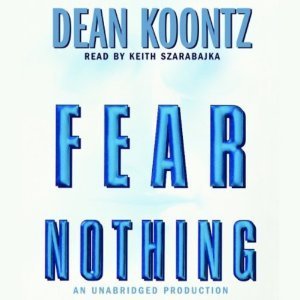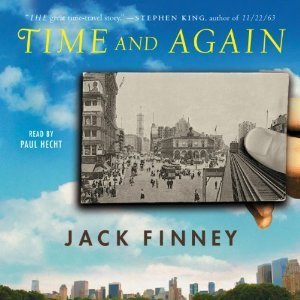Samyann's Blog, page 60
March 19, 2014
The Martian by Andy Weir – Review
Audiobook. Really liked the fundamental premise of this story: An astronaut stranded, alone, on mars. There is an absolute abundance of jargon regarding the equipment, what it is for, how it can be useful, altered, scavenged, etc., in a ‘castaway on mars’ situation. Frankly, I stopped backing up the file in my effort to understand, and allowed my eyes to glaze occasionally. The story is just loaded with this how-to information – I’m sure some engineering geeks will really enjoy, some will yawn. I kept going, however, because of the baby boomer fascination with the space program. It’s in the psyche, somewhere deep in the bones of anyone who lived through the sixties and seventies glued to grainy black and white television images of launches, failures to launch, and amazing success.
Personally, would rather the story had been more character rather than technology driven. However, there are a few characters that go beyond two-dimentional, most don’t. You’ll find the lead, Mark Watney, sense of humor a hoot, even through the many life and death situations the red planet throws his way. If you can get past or enjoy a boat load of description, it’s a good story.

March 17, 2014
Fear Nothing by Dean Koontz – Review
Audiobook. The characters in Fear Nothing are well done. The lead, Christopher Snow, has a genetic disease that pretty much enables him to do what ever he pleases, so long as he is completely unexposed to all but the dimmest of light. He has a handful of friends that love him and basically, he’s a happy guy. Not a spoiler with that information, you’ll get that within the first few paragraphs. The remainder of the story involves the efforts of Snow to explain mysterious changes in the people and animals located in the small town of Moonlight Bay. Suspend beliefs, it’s science fiction. However, genetic manipulation is probably farther along than it was at the time this book was written. Although in typical Dean Koontz fashion, the story is presented in a manner to be spooky, the unknown capabilities of genetic science gives one pause.
Took me a while to get used to the narration of Keith Szarabaika. He worked hard at delivering the netherworld-scary rhythm … maybe a little too hard.
Personally, I found the ending a bit anticlimactic, and was hoping for more heroic efforts on the part of Christopher Snow and his band of friends. Ultimately he does not right the wrongs of others … no happily ever after scenario. Think the worst and you’re pretty close to the truth.

March 15, 2014
The Longest Ride by Nicholas Sparks – Review
Audiobook. Lots and lots of reviews, so you can get story synopsis information elsewhere. The most significant comment I can make is with regard to the contribution to the love story genre that Nicholas Sparks has made over the years. This genre is rarely attempted or conquered by a male author. Sparks goes way out on a limb in his writing conveying the heartfelt and wonderfully emotional depth of a man’s love for a woman. Not just in The Longest Ride, but in other books I’ve read, i.e., The Notebook, Safe Haven. I constantly had to remind myself that ‘this was written by a man’, followed with, ‘how great is that’. Romantic song lyrics or poetry are almost always written by men. It’s a treat, and rare, in modern novels.
Although I’ve listened to audiobooks for over fifteen years, I’ve never heard one with a cast; this is my first. It’s not that I’ve deliberately avoided multi-reader stories, it’s just that nothing I’ve ever run across, and wanted, has had more than one narrator. Briefly, this was a very pleasant experience and both Ron McLarty and January LaVoy do an excellent job. Both are confronted with male and female characters, McLarty also dealing with ethnicity. Well done.
The Longest Ride is not a deep story, nor a world-shattering contribution to great literature. But, it is a nice, curl-up-on-the-couch romance, typical ofNicholas Sparks.

March 13, 2014
Time and Again by Jack Finney – Review
Audiobook. Written in 1970, the story centers around a man who agrees to participate in a government sponsored experiment involving time travel. The main character, Si Morley, is transported to 1892 New York and the author expertly conveys the changes that have, over a lifetime, occurred throughout the city. No spoilers here, but the powers that be who are in charge of this experiment ultimately want their subject to change history. He verbally agrees, but goes back to 1892 and changes history in a manner they didn’t have in mind. This is a time travel love story. It’s interesting to grasp the 1970 political mindset of the time that doesn’t exist in 2014, i.e., we were in the midst of a cold war and had just landed on the moon. It’s also interesting that, in the last year or so, we again look warily at and fear a Russian threat today: “Time and Again”, indeed.
Time and Again is recommended by Stephen King as a stellar example of time travel and science fiction in general, which it is….but, much like King, Finney uses his book as a platform to voice political views. Personally, I’m of the opinion that if an author wants to write about politics, fine….but, leave it out of a fictional novel and let the reader simply enjoy a good story without agendas of any political persuasion. Fortunately, this only happens once in Time and Again, and it is near the end of the story.
Narration by Paul Hecht is super. Voices of all characters are unique and well defined.
In summary, the book is a pleasant listen. The science presented is weak, but the time travel to and the era of 1892 in New York is well researched and believable.

March 8, 2014
11-22-63 by Stephen King – Review
Audiobook. Lot’s of reviews, no wonder: It’s a Stephen King novel. The man says ‘story trumps all’, and within this context, 11-22-63 is a super story. However, very typically Stephen King, the book is long and wordy. For example, at one point is a description of an boxing match…fast forwarded, because you know the outcome and personally, I’m not into boxing. There are some editing issues, i.e, thoughts expressed in the prose that are later contradicted and not caught during a close review by the author or the editor. It’s also interesting that the author is permitted the disregard of writing standards that would ‘slush pile’ such work. Adverbs, adjectives, ‘ly’ words, POV breaks all over the board, etc. All are okay, if you are Stephen King. But, try to get away with any of this as a novice author and you’re toast.
There is an instance in the editing of the story I find a bit bizarre. The lead character is an educated teacher, smart. This character indicates a bit of distress with the fact that Marina Oswald is expecting a second child, in such a manner as to convey that he was totally ignorant of the fact. Not believable, to me. Even though the actual assassination of Kennedy would have taken place before this guy was born and is/was as much history to him as WWII, he’d have to have been living under a rock not to have seen pictures of that woman with her two kids at some point. Especially considering that he’s lived through years of Kennedy assassination anniversary documentaries. Not realistic.
Narration is good. No trouble following the characters. Sadie’s voice is whiny, but maybe this is simply the way the narrator visualizes the dependent women of the time.

March 4, 2014
Passage by Connie Willis – Review
Audiobook. Passage is just over twenty-nine hours of audiobook, at least ten hours too long. The book has tons of reviews, in many you’ll find a synopsis of the story, so I’ll refrain from repetition. This, in my opinion, is one of the problems with Passage. There are many, many instances of repetition, all over the board with regard to topic, some repeated more than once. Enough. You get the idea. Get the abridged version, if you care to pursue.
With regard to fundamental beliefs, I’ve no bone to pick with Connie Willis. All of human kind has struggled with the answer of what happens after death. This is simply one opinion I can’t say I believe, although the theories of brain activity are indisputable scientific facts. The thought process resulting from this physiciological activity, is still, and probably always will be, speculative … and fodder for fictional authors.
An entertaining read. The ending is a bit of a let down. In my opinion, it is hardly breathtaking, as some reviews state.

March 3, 2014
My Writing Process – Blog Hop
I’ve recently been offered the opportunity to participate in my very first blog hop. The last ‘hop’ I participated in involved a high school dance and a boy my mother disapproved of because he was a year older than me. I’m in my sixties and he’s likely fat and bald, so how out of touch is that? This particular blog hop is all about authors offering the opportunity to look under the hood of each others lives and writing habits. I hope I don’t bore you to death.
I blame my participation on the lovely and talented Aubrey Wynne.
Author of Merry Christmas, Henry. Click the image to go directly to Amazon!:
CLICK HERE to learn Aubrey’s secrets about this lovely story and her upcoming books!
Now, to actively participate in the Blog Hop, allow me to answer some questions:
Q. What am I working on?
Current work in progress is a novel of romance and reincarnation. The settings are modern day Chicago and WWII Europe.
Q. How does my work differ from others of its genre?
Frankly, I’m not sure there is a specific genre for my stories. My focus is on reincarnation, romance, and accurate history. There are time travel books out there, and pretty good ones. But the specific combination of these three genres is rare. I think the best out there is the Gabaldon series, Outlander. Although time travel, they are romance and history, too. But, not reincarnation.
Q. Why do I write what I do?
Born and raised in Chicago, I’ve an affinity for basing my stories here. There is a plethora of history in this town, fodder for imagination. For example, did you know that following the destruction of the Great Chicago Fire of 1871, Queen Victoria and the people of Britain shipped cartons of books to Chicago. English novelist Thomas Hughes helped organize the books, which were the basis of the Chicago Public Library we know today. Some are still there, but they are no longer loaned out, of course. There is a novel in that little tale, right? Mmmm, maybe from the point of view of a book? As far as reincarnation, well, I enjoy the ‘what-if’ aspect. It’s fun to let imagination soar with the possibilities of the unknown, yet very possible mysteries of humanity.
Q. How does your writing process work?
I don’t have a specific process, unfortunately. I know that this is the basis of the Blog Hop, but maybe the fact that I have no process is a process in itself? I read and try to write every day. Sometimes successful, sometimes, not.
Q. Who will we meet next week?
I’m passing this baton to my friend, E.D. Martin, author of a wonderful novel of love, heartbreak, and life’s challenges. Click the image to go directly to Amazon:
CLICK HERE to go directly to E.D.Martin’s website!
March 2, 2014
Who was the youngest general in the Civil War?
Galusha Pennypacker. At the age of 16 he enlisted as a quartermaster sergeant in the 9th Pennsylvania Infantry Regiment. In October 1861, he was appointed a major in the 97th Pennsylvania, for which he had helped recruit a company of men. Pennypacker’s greatest moment of the war came at the Second Battle of Fort Fisher, January 15, 1865, where he received what many thought a fatal wound. General Terry promised he would receive a brevet promotion for his conduct that day, and called him ”the real hero of Fort Fisher.” Pennypacker much later was awarded the Medal of Honor, with a citation reading: “He gallantly led the charge over a traverse and planted the colors of one of his regiments thereon; was severely wounded.” He survived his wounds after 10 months in the hospital and on February 18, 1865, received a full promotion to brigadier general of volunteers at age 20, making him the youngest officer to hold the rank of general to this day in the United States Army. Pennypacker stayed in the Army after the Civil War, serving on the frontier as Colonel of the 34th U.S. Infantry, transferring in 1869 to the 16th U.S. Infantry, which he commanded until his retirement in July 1883.
March 1, 2014
What is a “Squibb Pannier.”
A compact medical chest. Edward Robinson Squibb (1819-1900) was a Navy doctor who saw the need to improve the quality of medicines available on ships during the Mexican War. In 1858 he founded his own pharmaceutical laboratory to produce uniform, high-quality medicines. /p> Squibb made these medicines available to the Union Army during the Civil War with the invention of the Squibb pannier which was filled with some 50 medicines to enable doctors to treat casualties on the battlefield. It sold for about $100, and included ether, chloroform, quinine, whiskey, and herbal treatments for dysentery. The chest included a chart glued to the inside lid which showed where each of the numbered medicines was located in the box.
Yeah, it’s the same Squibb as today’s Bristol-Myers-Squibb, just in case you wondered.
Now you know!
February 28, 2014
What was a “hire badge”?
The practice of the ‘hire badge’ harkens back to that period of American history prior to the end of the Civil War. Slave hire badges were worn by slaves who were hired out by their owners. Badge laws were first passed in order to identify slaves, tax the practice, and to limit this type of labor from competing with white tradesmen in urban areas. The tags are about 3” in diameter, made of thin copper and etched with a number, city, occupation, and year. Of the many thousands that were issued, only about 100 still exist, and therefore are extremely valuable. They evoke the heartbreak of slavery in America, from which a profit is still made. Today slave badges are valued at over $30,000.




